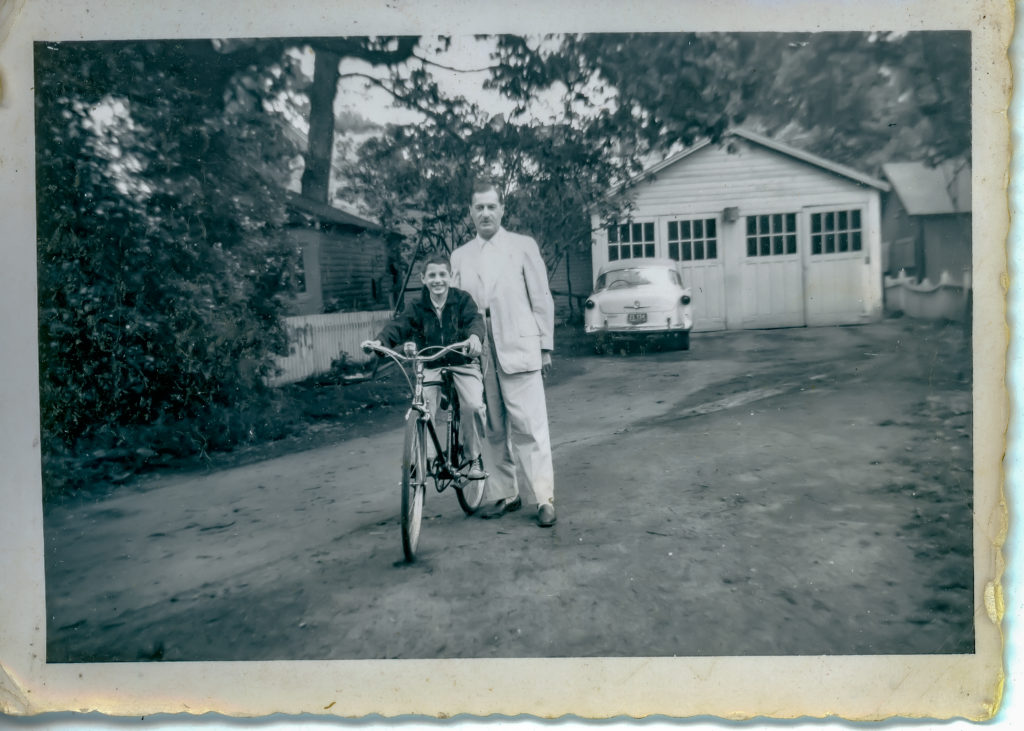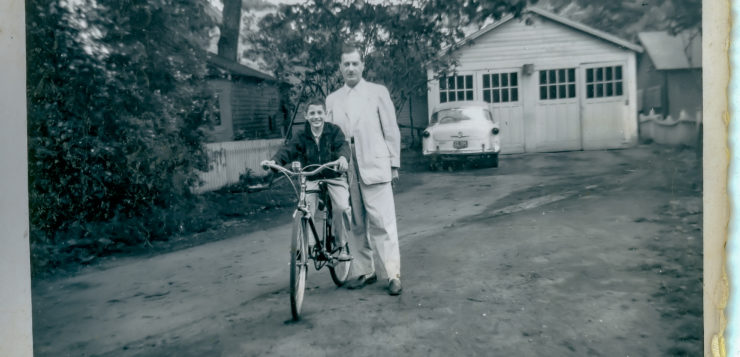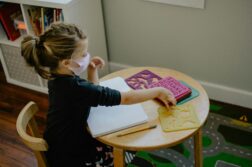
It was a gold Seiko. It wasn’t a particularly expensive watch, but it was priceless to me because it had belonged to my father. It was a part of him, something he’d worn every day. Even years after he died, I could still detect his sweet, masculine scent embedded in the brown alligator band.
At first I kept the watch in a drawer of my desk in my Upper West Side apartment. It was too precious to wear every day. Besides, as a lowly proofreader at a law firm, I didn’t think an elegant gold watch fit my lifestyle or my modest station in life.
I didn’t take it out again for several years. By then I was working as an editor at a financial news service on Wall Street, and I decided the time had come to wear a man’s watch, my father’s watch. But after its long hibernation, the Seiko was no longer working. I took it to a jewelry shop on Chambers Street, in the shadow of the World Trade Center, not far from my office on Lower Broadway. It was a garish place with cheesy-looking jewelry displayed in glass-and-chrome cases illuminated by glaring fluorescent lights. The man behind the counter spoke in a brusque Brooklynese. Not Dad’s kind of place, to be sure, but it was convenient.
The following week I went back to pick up the watch. I paid the jeweler and tucked it into a side pocket of my worn tweed blazer. I was pleased to have the Seiko back and running again, but I also felt a tinge of sadness and loss, as I often did when I thought of my father. He had always been such an elusive figure in my life, not quite present even when he was there.
As I headed back down Broadway, I thought of a club I heard about in the neighborhood. It made no sense to go there, of course. It was the middle of the day, and I only had an hour for lunch. Even though I often stretched my break by a few minutes, going to a club—a sex club, no less—was really pushing it. But I felt the urge to break out of my workaday routine, to do something reckless. My libido was wrestling with my cerebrum, and when you’re a young man awash in testosterone, that’s often a one-sided contest.
I turned down a narrow side street. My stomach was fluttering with a mix of guilt and excitement. Guilt about being gay, perhaps, and resorting to such a crude place to obtain sexual gratification. Excitement about entering a forbidden realm, a realm my parents in their tidy suburban home could hardly imagine.
I entered a narrow, dimly lit lobby and rode the elevator to the 11th floor. The doors opened onto a small, windowless room that smelled faintly of ammonia and cigarettes. A jaundiced-looking man behind the counter took my money and handed me a towel and a key, pointing to a doorway off to the side.
I entered a cramped changing room lined with lockers and a few folding metal chairs. A couple of middle-aged men were hurriedly pulling on their shirts and pants and knotting their ties. One of them looked me over out of the corner of his eye as if he were considering the dessert menu at Chock Full o’Nuts. I turned my back and quickly undressed, neatly folding my clothes in the tiny locker.
I wrapped the thin, nubby towel around my waist and padded down a narrow corridor lined with cubicles. I heard no sounds emanating from those dark trysting grounds. The place seemed deserted. It was nearly 2 p.m. and most of the lunchtime customers had presumably gone back to work by now. At the end of the hall I ventured into a small room illuminated only by a bare red light bulb dangling from the ceiling. The room was empty except for a couple of stained mattresses lying on the floor. The air had the sharp, salty smell of dried semen and sweat. I stood and waited, nervously tapping my bare foot on the cool linoleum floor.
I felt dirty and depraved, so different from the man whose watch was sitting in my coat pocket. My father had been a courtly, meticulous man. Even on weekends, he would often wear freshly pressed slacks, a dress shirt and his trademark bow tie. He would have been shocked to see his son in such a sordid place where lonely, desperate businessmen went for a few minutes of pleasure.
After several long minutes I heard the slap of footsteps in the hallway. A balding man with a bulging stomach entered the room. He waited a few moments, letting his eyes adjust to the ruby gloom, then sidled closer. He was not particularly attractive, but he wasn’t revolting either. And it was getting late. I met his leering gaze and tugged at my towel.
When it was over, and it was over quickly, I hurried back to my locker and pulled on my clothes. I didn’t bother to shower; there was no time and who knew who—or what—would be lurking in the stalls. I raced back to the office and slumped into my chair, drenched in sweat and feelings of shame.
But it was only later, after I returned to my apartment, that I realized the true price of my afternoon dalliance. I reached into my coat pocket to retrieve the watch, but it was empty. My scrabbling fingers traced a hole in the frayed silk lining. In a panic, I searched the other pockets, but there was nothing but keys, coins, and a clump of old Kleenex. The watch was gone. I felt a jolt, as if I had been zapped by a Taser.
The next day I went back to the bathhouse and posted a note in the lobby: “$100 reward for gold Seiko watch,” it read. “Sentimental value. It belonged to my father. Please call ____. No questions asked.”
No one ever responded.
Peter Kupfer is a freelance writer, editor and photographer based in San Francisco. He is a former editor at The San Francisco Chronicle and UPI in New York. “The Watch” is an excerpt from Looking for the Glassmaker’s Son, a memoir in progress about the author’s father, Robert Cooper, who was a refugee from Nazi Germany.







Discussion2 Comments
Oh, what a heartbreaker. I haven’t had a similar experience, but I sure feel yours and can imagine your voice, “If I had to lose it, why did it have to be there?”
Yes, exactly, Bruce. Why there?
And for the record, though I am still sad about losing my father’s watch, I am no longer ashamed about my sexuality. I am proud to be gay — that is, I am proud to be me.